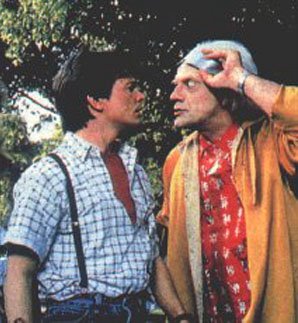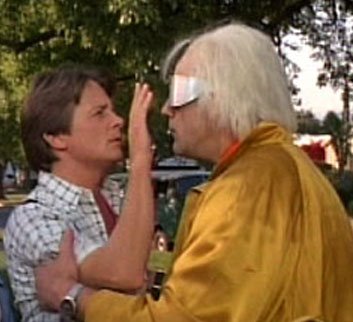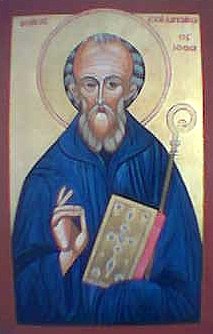
Today's Word of the Day is: Eejit
eejit • (pron:"E-jeet") pl. eejits, n, noun, excessively foolish fellow, stereotypical Irish insult. Plain "idiot" according to the Oxford English Dictionary. Having clear roots in the word "idiot," the Irish sensibility phonetically softened this insult while adding an affectionate connotation to the meaning and thereby lessening the severity of calling someone a "pure idiot." In contrast, an eejit suggests a simmilar meaning to being a "loveable rogue", or an "old duffer", or simply an "oaf." One might call a friend or member of one's family "a complete eejit" for their obvious bumbling, but this wouldn't be as gauntlet throwing as calling him "a complete idiot."
USAGE: An example used in a sentence:
"The Fifty-Five Catholic Democrats in the U.S. House of Representatives are complete eejits!"
This example might not be immediately obvious, but simply read their recent Statement of Principles on being Catholic and legislators, and compare it to the Bishop's response.
Here is a sample:
The 55 Eejit Catholic Democrats:
We are committed to making real the basic principles that are at the heart of Catholic social teaching: helping the poor and disadvantaged, protecting the most vulnerable among us, and ensuring that all Americans of every faith are given meaningful opportunities to share in the blessings of this great country. ... As Catholic Democrats who embrace the vocation and mission of the laity as expressed by Pope John Paul II in his Apostolic Exhortation, Christifideles Laici, we believe that the Church is the "people of God," called to be a moral force in the broadest sense.
The USCCB Task Force on Catholic Bishops and Catholic Politicians respond:
[W]e also need to reaffirm the Catholic Church’s constant teaching that abortion is a grave violation of the most fundamental human right – the right to life that is inherent in all human beings, and that grounds every other right we possess. Pope John Paul II’s apostolic exhortation on the vocation and mission of the laity, Christifideles Laici, which the Representatives’ statement cites, declares: The inviolability of the person which is a reflection of the absolute inviolability of God fínds its primary and fundamental expression in the inviolability of human life. Above all, the common outcry, which is justly made on behalf of human rights -- for example, the right to health, to home, to work, to family, to culture -- is false and illusory if the right to life, the most basic and fundamental right and the condition for all other personal rights, is not defended with maximum determination…. The human being is entitled to such rights, in every phase of development, from conception until natural death; and in every condition, whether healthy or sick, whole or handicapped, rich or poor (# 38). While it is always necessary to work to reduce the number of abortions by providing alternatives and help to vulnerable parents and children, Catholic teaching calls all Catholics to work actively to restrain, restrict and bring to an end the destruction of unborn human life.
When a fellow Catholic who not only identifies himself as a Catholic, but also takes it seriously (like reading the WHOLE document Christifideles Laici, rather than just the parts that are politically useful) sees his beloved brothers and sisters making of themselves public asses, he can only sigh with affection and say,
 The Statement of Principles by the Fifty-Five Catholic Democrats in the U.S. House of Representatives is the equivalent of standing up with buttons declaring:
The Statement of Principles by the Fifty-Five Catholic Democrats in the U.S. House of Representatives is the equivalent of standing up with buttons declaring: 

 Now that Brokeback Mountain is set to sweep the Oscars, we, the viewing public are now able to recognize the true depths of love that can overcome two seemingly straightmen. Ah! How free it feels to be liberated from those oppressive moral constraints that imposed a blindness on the viewing public. Horray for Hollywood! Liberators of the masses!
Now that Brokeback Mountain is set to sweep the Oscars, we, the viewing public are now able to recognize the true depths of love that can overcome two seemingly straightmen. Ah! How free it feels to be liberated from those oppressive moral constraints that imposed a blindness on the viewing public. Horray for Hollywood! Liberators of the masses!

